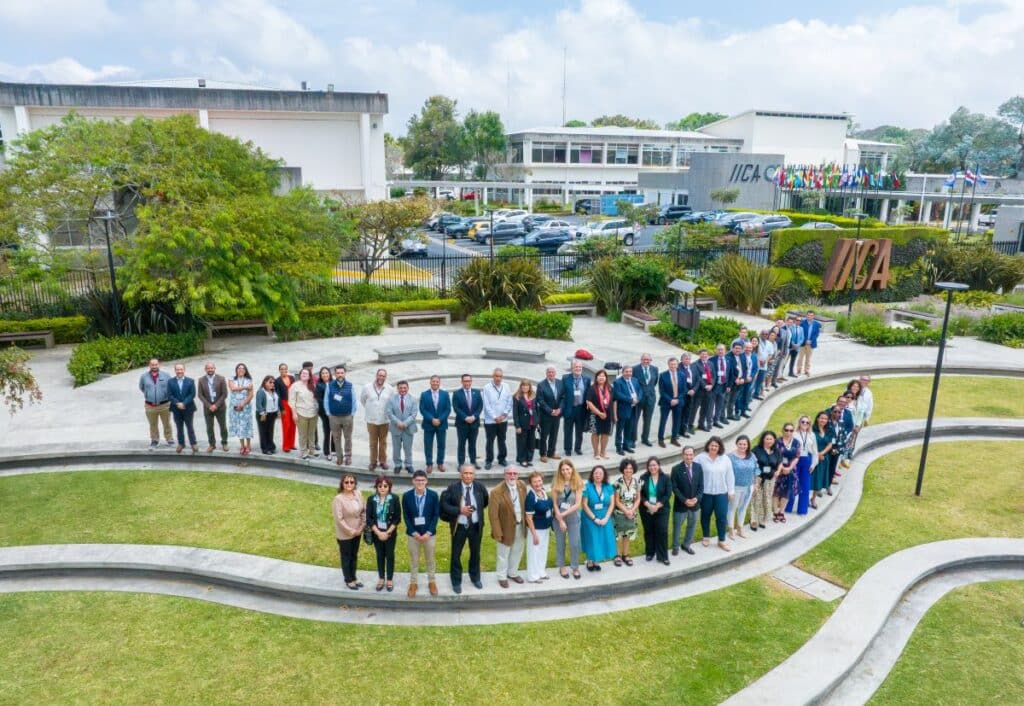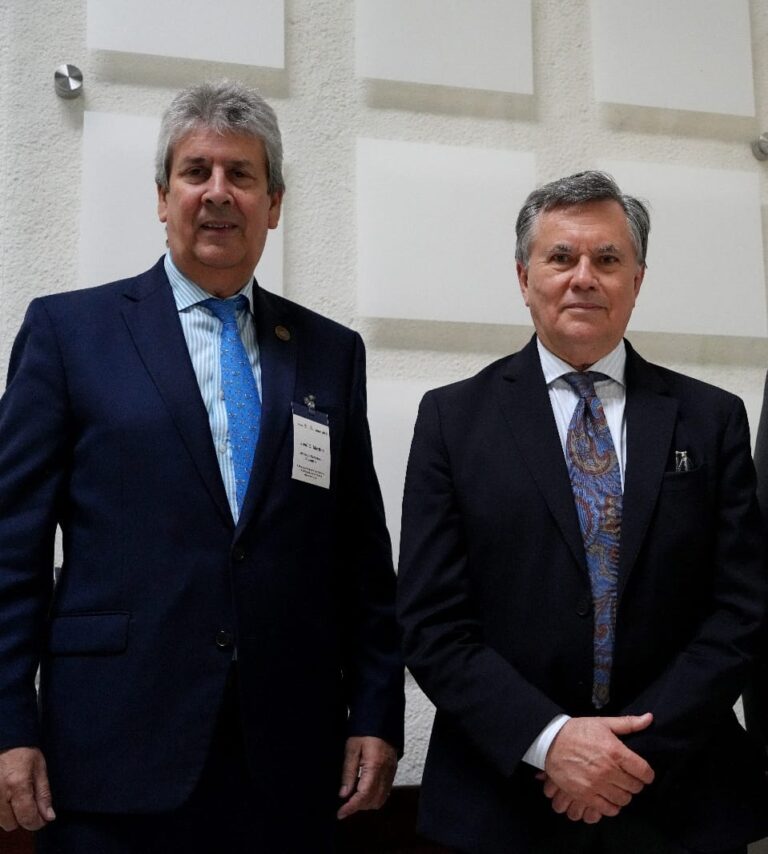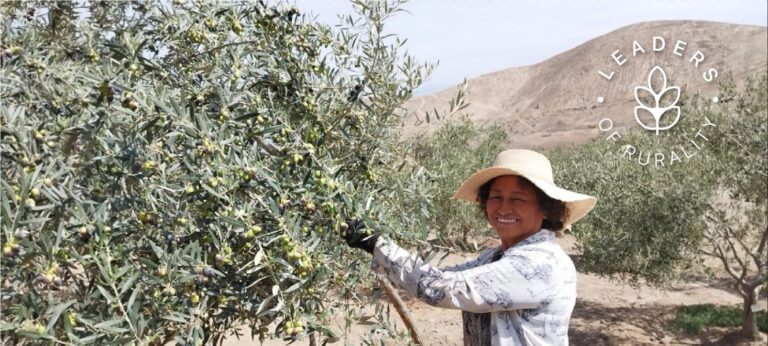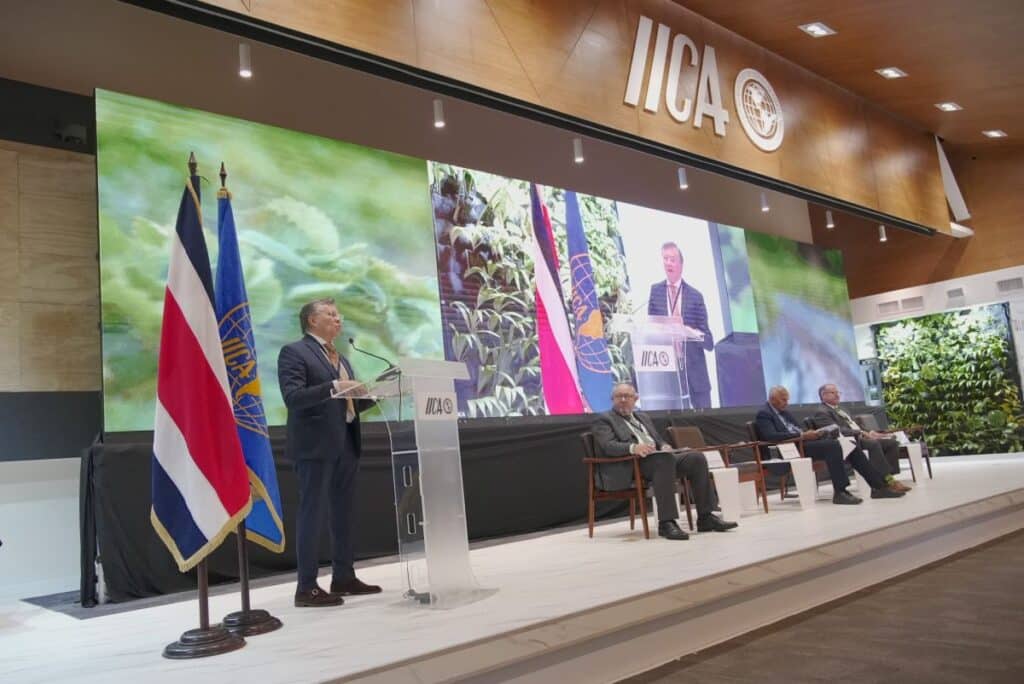
San Jose, 19 March 2025 (IICA) – The Inter-American Institute for Cooperation on Agriculture (IICA) inaugurated the “Cultivating Talent: Driving Science and Innovation in the Agrifood Sector of Europe and the Americas” meeting, seeking to promote the sharing of knowledge and experiences regarding science, innovation and education in agriculture, as well as to foster new leadership and the use of emerging technologies.
More than fifty participants have come together for the event, including representatives from academia, research and innovation centers and technical cooperation organizations, in addition to other authorities, from countries such as Brazil, Costa Rica, Chile, Dominican Republic, El Salvador, Guatemala, Honduras, Mexico, Peru, Spain and the United States.
In officially opening the meeting—which will end on Friday—IICA Director General, Manuel Otero; President of Red INNOVAGRO and Chancellor of Universidad de Córdoba in Spain, Manuel Torralbo; and IICA’s Director of Technical Cooperation, Muhammad Ibrahim, all stressed the need to modernize and transform the agrifood sector as a means of addressing current challenges, particularly in the areas of sustainability, inclusion and food security. They also highlighted the critical importance of pooling efforts and strengthening human resources to respond to accelerated changes in the sector.
“The is the time for Latin American and Caribbean agriculture – a time to come together with Europe and the other regions of the world to discuss the future that we desire. We must be guided by the need to listen, propose and act together. It is evident that we must create a new human resources profile for the sector, as this will be an essential step in this major revolution that is taking place. The sector must have a human face and a clear commitment to natural resource conservation”, stated Otero.
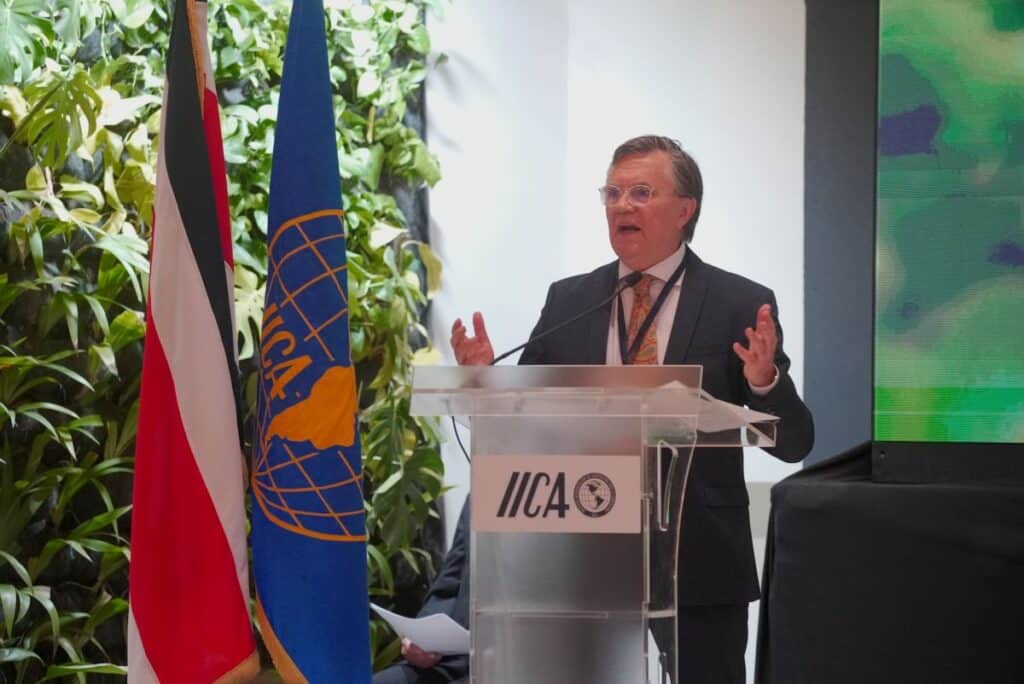
“IICA would like to be a leading player in creating a new era for agriculture. Thus, we want to forge partnerships and assume commitments to continue transforming rural areas and this world that so needs it, through increased prosperity and inclusion”, he reflected.
On the other hand, Torralbo maintained that “Science, technology, innovation and education are the tools that will enhance professional competencies and will be fundamental pillars for agrifood system transformation, particularly in a global context in which food security, inclusion, sustainability and climate resilience are pressing challenges for all”.
He pointed out that, “Universities and centers of excellence play an essential role in training human talent and this event provides a unique opportunity to strengthen collaboration between key agents and to foster greater international cooperation to drive sustainability, food security with climate and social justice, and the transition towards sustainable innovation ecosystems in Latin America and Europe”.
The event was attended by university chancellors, deans and directors of higher education institutions, namely Universidad de Buenos Aires; Universidad de Talca, in Chile; Universidad de Costa Rica; the Agrifood Campus of International Excellence (ceiA3), Universidad de Almería and the universities of Córdoba, Cádiz, Huelva and Jaén, in Spain; as well as Universidad de San Carlos in Guatemala, Mexico’s Universidad Nacional Autónoma, Universidad Nacional Agraria La Molina in Peru, EARTH University and Paraguay’s Universidad Nacional de Asunción, among others.
Muhammad Ibrahim, the Director of Technical Cooperation of the specialized agency in agriculture and rurality, stressed the vital need for agrifood system transformation to address the growing global demand for food. Thus, the modernization of science, technology and innovation is fundamental to strengthening agriculture and improving food security, whereas international cooperation, whether South-South or South-North, is essential for research and agricultural development.
“IICA is promoting strategic initiatives such as the Leadership School and partnerships with the private sector, academia and research centers. We need to accelerate the transformation of food systems to satisfy the global demand for food, to foster responsible food consumption and nutritional health, and to protect our natural resources, without undermining equality”, said Ibrahim.
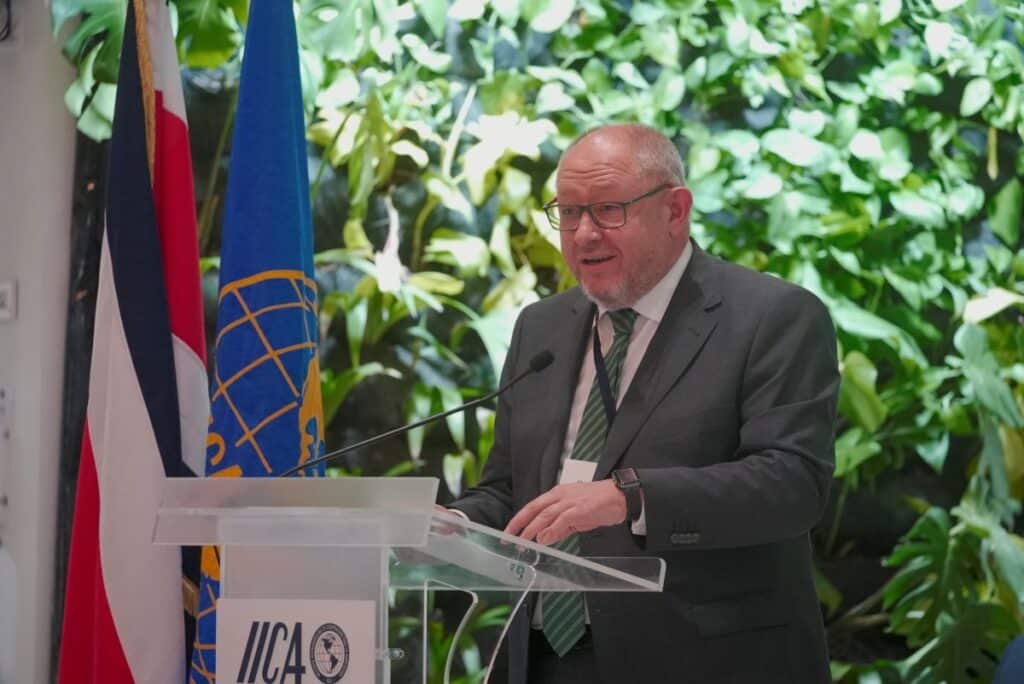
Promoting innovation in tomorrow’s agriculture
Over the course of the five-day meeting, the more than fifty experts will address topics such as new challenges in training professionals in the agrifood sector; regional collaboration as a strategy to facilitate educational integrational without borders; progress in remote education modalities in Latin America and the Caribbean; innovative techniques to identify and attract potential students with conversational marketing tools; the agrifood potential of universities; and the revitalization of regional innovation ecosystems, among others.
Furthermore, IICA will deliver a presentation on the Leadership School for the Transformation of Agrifood Systems of the Americas (ELTSA), an IICA initiative that identifies and trains agrifood sector leaders, cultivating leadership and innovation in their communities. It will also launch the Chair in Tropical Agriculture (CTA) of the Tropical Agricultural Research and Higher Education Center (CATIE), which will seek to encourage research and the training of professionals in tropical agriculture.
Franklin Marín, Coordinator of the Center for Knowledge Management and Horizontal Cooperation Services at IICA, explained that, “The Leadership School is geared towards the development of future generations and new skills for young people; and the purpose of this event is also to forge collaborative ties between IICA and these educational institutions and between the institutions themselves, to offer training and certification for the individuals who will lead the agrifood sectors of the Americas in the future”.
The meeting will feature a discussion on the application of artificial intelligence in sustainable agriculture, with a view to encouraging academics, decision makers, and AgTech entrepreneurs to exchange knowledge and experiences about its use and applications. It will also seek to identify opportunities and challenges, in order to devise strategies that will facilitate AI technology adoption in the agriculture sector.
Among the activities planned for the participants is a visit to the Agricultural Research Center at Universidad de Costa Rica, where they will be introduced to biomanufacturing, specifically the use of biological tools to manage pests and diseases and to enhance nutrition in agricultural crops. There will be field trips to the Biosystems Engineering Lab and the Café Revalorizado project, where gas and fertilizer are produced from coffee processing waste; and to the Robustez initiative, which produces bioethanol from pineapple production residue.
They will tour the Los Diamantes Experimental Station in Guápiles, on Costa Rica’s Caribbean coast, to view its smart greenhouse and its agricultural and livestock products, and to gain a more in-depth understanding of genetic improvement in tropical fruits. Moreover, they will visit the Corporación Bananera Nacional (CORBANA). At CORBANA’s Research, Credit, Technical Assistance and Research Center at the La Rita Station, they will examine the socioeconomic, technological and productive development of the banana industry, and at Banaclima will learn about work to improve the cultivation and harvesting of the fruit.
